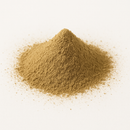Description
NATURAL MOOD ENHANCER
#1 Selling herbs for uplifting the mood in the U.S.A and the U.K.
Sceletium Tortuosum, Kanna, Kougoed, Chana
Our Sceletium is 100% pure and it has been analyzed, shown to have a high Mesembrine content of 22-24% or (1.9% by dry weight), which is a sign of good quality (Click here to see our Certificate of Analysis)
WHAT IS SCELETIUM (KANNA) USED FOR?
Sceletium tortuosum was used by South African pastoralists and hunter-gatherers as a mood-altering substance from prehistoric times. The earliest written records of the use of the plant date back to 1662 and the plant were first illustrated in 1685. Sceletium was an item of barter in the time of Jan van Riebeeck, and there is documentation of trade from the Castle in Cape Town, South Africa.
The traditionally prepared dried Sceletium was often chewed as a quid, and the saliva swallowed, but it has also been made into teas and tinctures. Sceletium used to be inhaled as a snuff, or smoked, usually with the addition of other herbs.
Sceletium elevates mood and decreases anxiety, stress, and tension. It is used to treat depression and is excellent for rehabilitating drug addictions as it is not addictive itself. In intoxicating doses, it can cause euphoria, initially with stimulation and later with sedation. It has also been used as an appetite suppressant by shepherds walking long distances in arid areas. Long-term use in the local context followed by abstinence has not been reported to result in a withdrawal state.
The plant is not hallucinogenic, and no severe adverse effects have been documented. Sceletium tortuosum was used in rural areas in very small doses as a treatment for colic in infants, added to a teaspoon of breast milk, and this use still survives in some local communities.
CHEMISTRY AND PHARMACOLOGY
The active constituents of Sceletium tortuosum are alkaloids, including mesembrine, mesembrenone, mesembrenol, and tortuosamine. The membrane is a major alkaloid present in Sceletium tortuosum and has been demonstrated in unpublished laboratory studies to be a very potent serotoni uptake inhibitor. Mesembrine This receptor-specific activity, and receptor activities also found on nicotinic, dopamine and non-adrenaline sites certainly validate the traditional mood-elevating uses and suggest additional therapeutic and wellness potential.
CLINICAL AND SUPPLEMENT USE
Tablets and capsules of Sceletium are being used successfully by a number of psychiatrists, psychologists, and doctors with excellent results for anxiety states and mild to moderate depression; and they can also be used by the lay public as supplements to elevate mood and for stress and tension. In addition, Sceletium is a common use for the stress and mental fatigue of modern industrial living.
Sceletium has been used as a natural supplement for Low mood, including grey weather syndrome, Decreases anxiety, stress, and tension, Used for drug rehabilitation, Improvement in libido, when lack of libido is from anxiety or low mood, Post-traumatic stress disorder, as part of a support program In addition to these better-known clinical uses, there is some preliminary evidence that Sceletium may be of value as a supplement in drug addiction rehabilitation and alcohol rehabilitation support, as part of a formal program. Research directions for the future include evaluation of potential in cognitive enhancement and the management of Parkinson's Disease and Alzheimer's Disease.
DOSAGE & SIDE EFFECTS
Do not exceed more than 200mg per day. Very few people experience side effects. The reported side-effects include occasional episodes of Mild headache, Slight nausea, no vomiting, Soft stool or loose stool with no cramping, Transient increase in anxiety or irritability an hour after initiating treatment, which resolves after an hour or so, Insomnia: corrected by lowering the dose or taking the product not later than midday, A feeling of sedation: corrected by taking the product as a single 50mg dose at night


